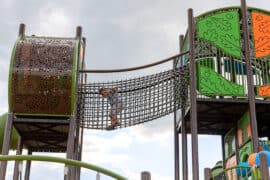Moving Out at 16 in Australia: A Comprehensive Guide for Parents and Teens
Welcome to our detailed guide on a question that crosses the minds of many Australian teens and their parents: Can you move out at 16 in Australia? If you or your child is considering taking this significant step towards independence, this article is here to provide clarity, understanding, and a sprinkle of encouragement in navigating this exciting yet challenging transition.
Understanding the Legal Aspect
First and foremost, let’s address the legal side of the matter. In Australia, the age at which a person is considered an adult is 18 years old. However, under certain circumstances, a young person can move out of their family home at 16. There isn’t a one-size-fits-all answer, as regulations can vary between states and territories and depend on a range of factors.
Typically, 16 and 17-year-olds can move out if they:
- Have their parents’ or guardians’ consent
- Can prove that they can financially support themselves
- Are moving into a safe and secure living situation
It’s important to note that while these are general guidelines, there may be legal implications and social services could become involved if the young person’s welfare is at risk.
Parental Concerns and Conversations
As a parent, the thought of your child moving out can bring a mix of emotions. Concerns about their safety, well-being, and readiness to tackle the adult world are common. It’s vital to have open and honest conversations with your child about their intentions, plans, and the support they may need.
During these discussions, consider topics like:
- Financial responsibility and budgeting
- Household management, including cooking and cleaning skills
- Education and employment goals
- Physical and mental health resources and support
By addressing these areas, you can help your teen build a more realistic expectation of what living independently entails.
Empowering Independence
Moving out at a young age can be both exhilarating and daunting. For many teens, it represents autonomy and the excitement of adult life. Encouraging responsible independence is key to a successful transition. This means equipping your child with the skills they’ll need before they leave the nest.
Consider essential life skills you can teach or reinforce, such as:
- Time management and personal organization
- Communication and negotiation skills, especially with potential landlords or housemates
- Basic first aid and personal safety awareness
- Navigating public transit or understanding the responsibilities of car ownership
Fostering these skills will not only prepare your child for moving out but also instill confidence in both you and your child that they are ready for what lies ahead.
It’s also beneficial for your teen to build a support network outside the family. This includes friends, mentors, counselors, or support groups that can offer help or advice when they face the inevitable challenges of independent living.
In the next sections of this guide, we’ll dive deeper into the practical steps and considerations for both parents and teens, ensuring a smooth and positive transition to independence. From understanding legal rights and responsibilities to setting up a budget and finding a place to live, there’s a lot to consider, but with thoughtfulness and preparation, teenagers can successfully embark on their journey to adulthood. So let’s get ready for this adventure into independence together!

Five Things Parents Should Know in Preparing for Their Teen to Move Out at 16 in Australia
1. Legal Rights and Responsibilities
It is crucial for both you and your teen to understand the legal implications of moving out at the young age of 16. Each state and territory have their specific laws, so it’s worth looking into the legal requirements in your area. Educate your child about their rights as a tenant and as an independent individual, as well as their responsibilities, such as adhering to tenancy agreements and managing bills.
2. Financial Literacy
Instilling good financial habits early will set your teen up for success when living independently. Discuss the concept of income versus expenses, the importance of saving, and how to create and stick to a budget. Ensure they understand financial commitments like rent, utilities, groceries, transport, and unexpected expenses.
3. Housing Options and Living Arrangements
Research different housing options together. Whether it be renting an apartment, a room in a shared house, or applying for government-assisted living for young people, ensure the accommodation is secure and suitable. Talk about the responsibilities involved with each option, including dealing with flatmates and maintaining the property.
4. Continued Education and Employment
Encourage your teen to consider how they will balance their education or training while living independently. Discuss the need for a stable income, which may require part-time or full-time employment. Guide them on career planning, and highlight the importance of job stability and career progression for long-term independence.
5. Emotional Readiness and Support Networks
Assess your teen’s emotional maturity and readiness for such a big step. Also, consider your own readiness to let go. Remind them (and yourself!) that seeking help is a strength, not a weakness. Encourage them to maintain a strong support network, including family, friends, and professional services, to help navigate this new phase in life.
While the prospect of a teen moving out at 16 may seem daunting, it can also be an empowering experience that promotes growth and responsibility. As a parent, your role is to offer guidance, support, and the tools necessary for your child to thrive on their own. With open communication, solid planning, and ongoing support, both you and your teen can approach this new chapter with confidence and optimism.
Remember, every family’s situation is unique, and there is no one right way to approach this transition. Be flexible, patient, and ready to adapt as both you and your teen learn and grow through the process. Supporting your child’s move towards independence is ultimately a loving and beneficial step towards their future as a capable and resilient adult. Let’s embrace this journey with positivity, and watch as our teens transform into independent, thriving young adults in the great land of Australia!
See more great Things to Do with Kids in New Zealand here. For more information see here
Disclaimer
The articles available via our website provide general information only and we strongly urge readers to exercise caution and conduct their own thorough research and fact-checking. The information presented should not be taken as absolute truth, and, to the maximum extent permitted by law, we will not be held liable for any inaccuracies or errors in the content. It is essential for individuals to independently verify and validate the information before making any decisions or taking any actions based on the articles.




